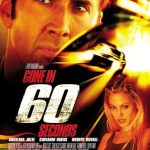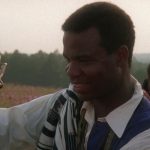Harry Potter and the Half-Blood Prince (2009)
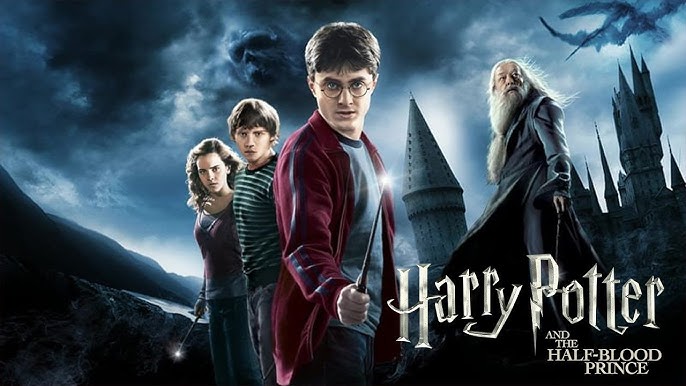
Harry Potter and the Half-Blood Prince (2009), directed by David Yates, is the sixth installment in the Harry Potter film series. Based on J.K. Rowling’s novel, the movie delves deeper into the darkness surrounding Lord Voldemort’s return to power, with Harry (Daniel Radcliffe) uncovering crucial secrets about his nemesis’s past. This film balances the darker elements with moments of humor and romance, capturing the characters’ growth and the increasing stakes of their journey.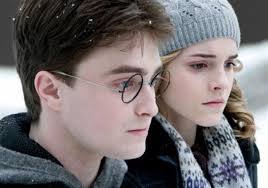
Plot Summary
As Voldemort’s influence spreads across the wizarding and Muggle worlds, Harry returns to Hogwarts for his sixth year. Headmaster Albus Dumbledore (Michael Gambon) enlists Harry’s help to learn more about Voldemort’s origins. Harry begins taking private lessons with Dumbledore, who shows him memories from the past, particularly of a young Tom Riddle, to understand how he became Lord Voldemort. These memories hint at the existence of Horcruxes—dark magical objects containing fragments of Voldemort’s soul, making him nearly immortal.
Meanwhile, Harry comes across an old Potions textbook with cryptic notes from a former student named the “Half-Blood Prince.” With the book’s guidance, Harry excels in Potions, but the mysterious annotations also hold a darker side. Harry, along with Hermione (Emma Watson) and Ron (Rupert Grint), navigates teenage romances, conflicts, and the mystery surrounding Draco Malfoy (Tom Felton), who appears to be involved in dangerous activities under Voldemort’s influence.
Key Themes and Tones
The themes in Half-Blood Prince are darker and more mature than previous films, centering on sacrifice, betrayal, and the loss of innocence. The movie explores how power, manipulation, and fear shape characters’ actions and motivations. Dumbledore’s relationship with Harry is deepened as they work together to thwart Voldemort’s plans, foreshadowing the sacrifices required in the final battle.
The film also balances this darkness with lighter, humorous scenes focusing on teenage relationships and friendship, giving fans a brief respite from the tension. The budding romance between Ron and Hermione, as well as Harry’s feelings for Ginny Weasley (Bonnie Wright), bring warmth to the otherwise somber narrative.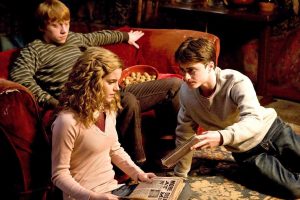
Performances
Daniel Radcliffe, Emma Watson, and Rupert Grint bring a maturity to their roles that reflects their characters’ growth. Radcliffe’s portrayal of Harry becomes more nuanced, reflecting his character’s burden and vulnerability. Tom Felton shines as Draco Malfoy, revealing his character’s internal struggle and fear as he is forced to serve Voldemort.
Jim Broadbent joins the cast as Horace Slughorn, a former Potions Master with a hidden past connected to Voldemort’s rise. Broadbent’s performance as Slughorn is both charming and tragic, capturing the character’s guilt and self-interest.
Cinematography and Visuals
The cinematography, led by Bruno Delbonnel, is visually stunning, with a more muted, desaturated color palette that mirrors the story’s darker tone. Many scenes are filmed with moody, shadowed lighting, symbolizing the encroaching darkness of Voldemort’s influence. Hogwarts feels more ominous and less like a sanctuary, with even familiar settings cast in an eerie light.
Music
Nicholas Hooper’s score for the film incorporates both the familiar Harry Potter themes and new compositions that add emotional weight to the film. The music underscores the heightened drama and suspense, especially in scenes involving Dumbledore and Harry’s investigation into Voldemort’s past.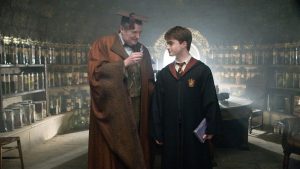
Climax and Ending
The film builds to a climactic and tragic ending. Dumbledore and Harry venture to a hidden cave to retrieve one of Voldemort’s Horcruxes, a mission that tests both their courage and resilience. After returning to Hogwarts, tragedy strikes when Severus Snape (Alan Rickman), fulfilling an Unbreakable Vow, kills Dumbledore in front of a devastated Harry. The shocking event leaves Harry and his friends facing an uncertain and dangerous future, vowing to find and destroy the remaining Horcruxes.
Critical Reception
The film was well-received by critics for its character development, visuals, and darker tone. However, some fans felt the adaptation deviated from the book in key moments, particularly in omitting certain subplots. Nevertheless, Half-Blood Prince is praised for its ability to balance humor, romance, and tragedy, effectively setting the stage for the climactic final two films.


